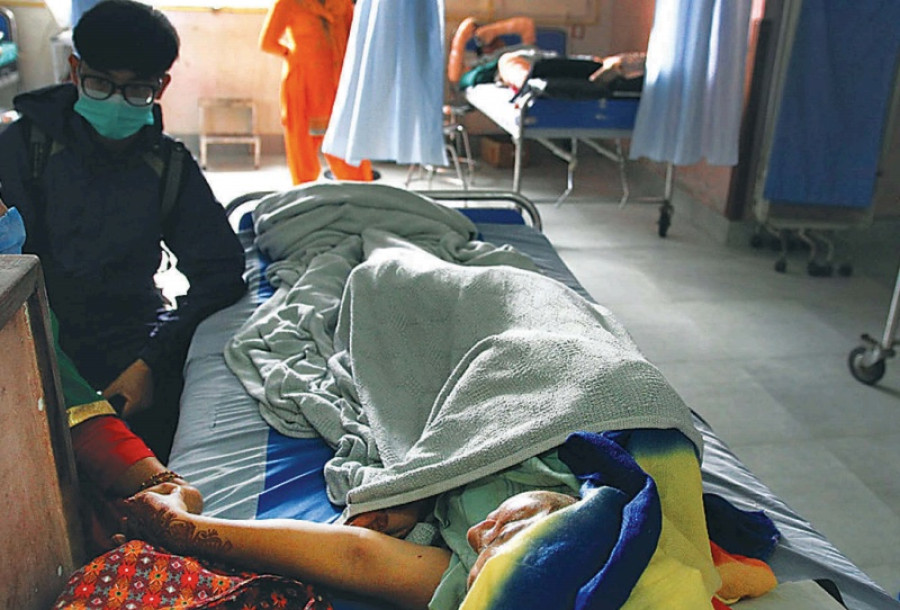Editorial
Firm first steps
Acid attack is a symptom of a much larger gender problem in our society. More needs to be done.
Three years after the Supreme Court issued an order to the government to regulate the sale and distribution of acid, the country finally has new laws to that effect. But the government needs to do more to end acid attacks in the country.
On Monday, President Bidya Devi Bhandari authenticated three ordinances—Acid and Other Fatal Chemicals (Regulation) Ordinance 2020, Ordinance to Revise some provisions in Criminal Codes and Criminal Procedure, and Nepal Police and Provincial Police (Operation, Coordination and Supervision) Act.
These are huge strides in deterring acid attacks as the new laws regulating the sale of acid and other fatal chemicals require sellers to maintain a database of buyers, including a copy of their identity documents, and stop the sale of acid in recycled bottles. It would be wise of the government to take one more step and ban the sale of acid in the retail market altogether as research has shown that strict regulations on acid purchases have a positive correlation with fewer acid attacks. Acid should no longer be available over the counter.
The new revisions in the Criminal Code have also increased the penalty for acid attacks, but they will do little to deter such attacks if the government fails to deploy a mechanism to strictly monitor its implementation. Additionally, these provisions need a careful review as acid attack survivors live in fear of future attacks once the perpetrators are released.
Acid attack is a horrendous crime that devastates the lives of survivors. The physical and psychological trauma of acid attack lasts for a lifetime. Medical treatment is also expensive and involves tedious surgeries and follow-ups. Besides, survivors also need proper counselling to overcome their trauma. The state, as a guardian, must ensure that the survivors have free and full medical support, either in government or private hospitals. After all their horrific experiences, the survivors who are seriously maimed or disabled should not be struggling to receive medical attention. This is not something the government can shy away from, and authorities should immediately work out a compensation scheme for acid attack survivors, together with a useful rehabilitation programme, and provide them with employment support.
In the past few years, Nepal has witnessed an increase in the number of acid attacks, and a majority of the victims are women. Activists who work to rehabilitate acid attack survivors say most of these attacks are over domestic disputes and rejected relationship proposals and sexual advances; and that a majority of such crimes are committed by men. Acid attack is, thus, a complex problem and symptom of a much larger gender problem in our society. Just introducing harsh laws to prevent these crimes is not a solution, and will not prevent future attacks.
We need to raise grassroots-level awareness of acid violence and the acute gender inequality that plagues our society. The government must engage with the communities at the local level and develop targeted policies and advocacy strategies to lead a social change. According to the 2019 Human Development Report, Nepal ranks 115th out of 162 countries with a Gender Inequality Index value of 0.476. This is an enormous gap to fill when it comes to levelling the playing field for women.




 13.12°C Kathmandu
13.12°C Kathmandu














